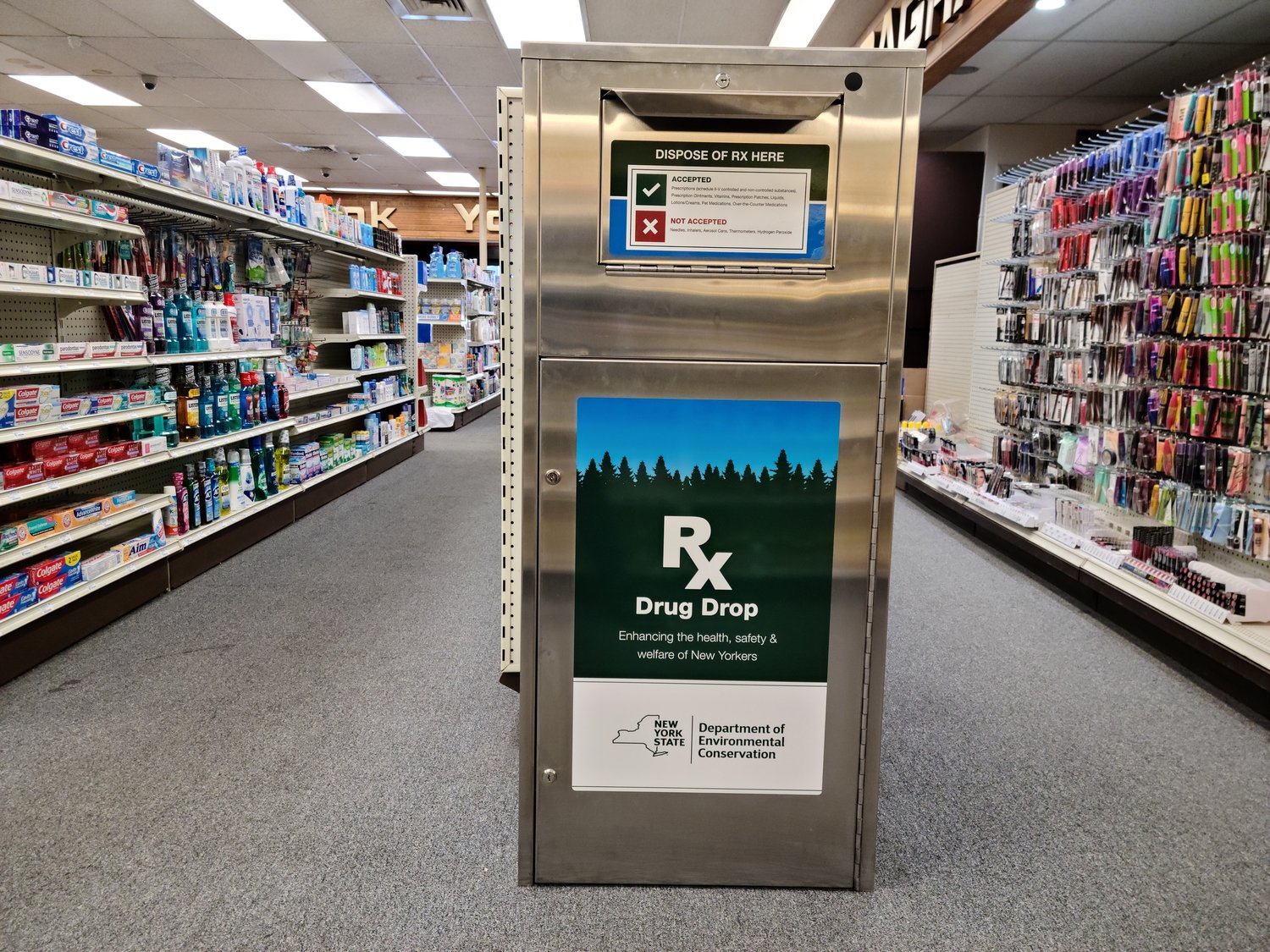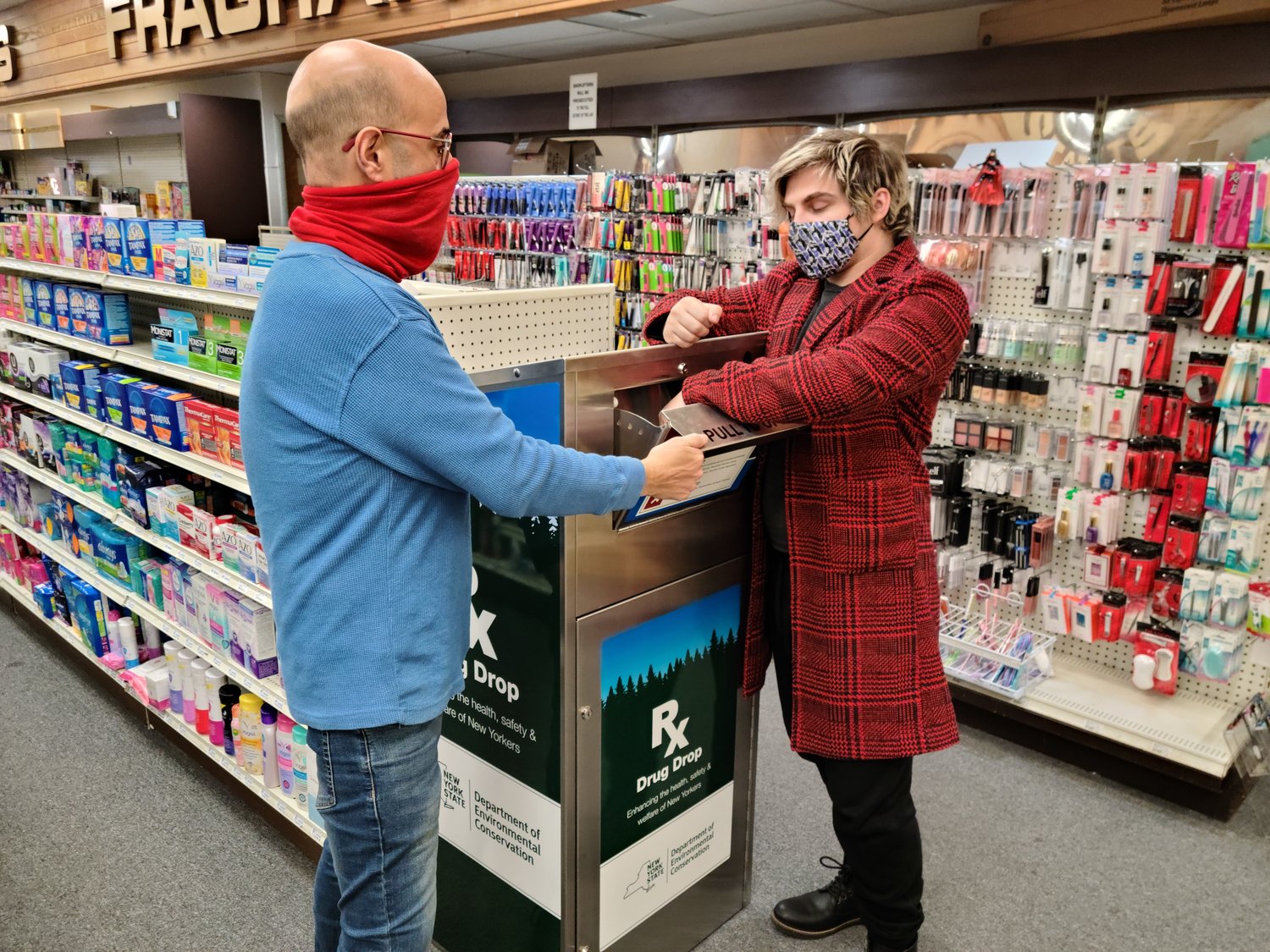Thursday, April 25, 2024
 45.0°,
Partly Cloudy
45.0°,
Partly Cloudy
Bayville offers drop box for medications
Keeping pharmaceuticals out of Bayville’s water
In the past, consumers were told to flush unwanted drugs - and despite technological advances and research, low levels of drugs have been found in NY waters.
-Flushed medications have been found in New York lakes, rivers and streams
-Fish and other aquatic wildlife experience behavioral and physical changes through continuous exposure to low levels of medications
-Drug-resistant bacteria can develop
-Wastewater treatment plants may not filter all medications
—New York State Department of Environmental Conservation
Accepted
-Prescriptions — controlled and non-controlled substances
-Prescription ointments
-Vitamins
-Prescription patches
-Liquids
-Lotions/creams
-Pet medicines
-Over the counter medications — no longer in use or expired
Not accepted
-Needles
-Inhalers
-Aerosol Cans
-Thermometers
-Hydrogen Peroxide
Flushing or throwing away unwanted drugs was once encouraged, but no more. Although the traditional options of disposal ensured that the drugs would not fall into the wrong hands, the New York State Department of Environmental Conservation has found that aquatic life can be adversely affected, as well as that of humans.
“In either case, these substances eventually find their way into our groundwater or the beautiful surface waters that surround our village,” Bayville Mayor Bob De Natale said. “Put simply, this can have potentially serious, long-term adverse effects on our health and the health of our environment.”
In Bayville, waste pharmaceuticals that end up in the garbage go into a landfill, and those flushed down the toilet are transported to either a septic tank or cesspool.
Richard Walka, a semi-retired environmental engineer and chairman of the Bayville Environmental Conservation Commission, worked for the DEC in the 1970s. When he learned of a line item in the 2021 state budget for DEC grants for secure drop boxes for prescription controlled and non-controlled substances, he became committed to making certain that the village had one at its pharmacy.
Walka said he knew the man who managed the grant program at the DEC. He also knew Michael Hancock, the owner of Bayville Pharmacy. He had worked at the pharmacy for nine years before purchasing it in 2019. Walka said that when he spoke to Hancock about helping him obtain the grant and the drop box, Hancock was excited about the prospect.
“People kept asking me, ‘Where do I drop this off?’ saying they didn’t want to put [medication] into their garbage or flush it down the toilet,” Hancock said. “Too many people have medication lying around, and some of it, they don’t even know what it is. People are more passionate now that their medication doesn’t go into the ground wells.”
Inside the box, which is roughly four feet tall, is a stainless steel box that, once filled, will be sealed and picked up by Covanta, an industrial waste management company, which will destroy the medications in an incinerator.
“This is much better than it getting into the environment,” Walka said. “We are finding [waste] pharmaceuticals in groundwater, streams and lakes. The drop box is a win-win-win, promoting health and safety, keeping the medication out of kids’ hands and doing something for the environment. This will have long-lasting effects.”
The box, which has been at Bayville Pharmacy for nearly a month, is locked at all times, opened only for medication drop-offs. People can also dispose of pet medication, creams, vitamins, patches and over-the-counter pain relievers like Tylenol. The only items not accepted are syringes, inhalers, aerosol cans, thermometers and hydrogen peroxide.
According to the DEC, it will pay for the U.S. Drug Enforcement Administration-compliant drop box and the replacement inner liners. The DEC will also cover the cost of pickup, transport and destruction of the box’s contents by a DEA-registered reverse distributor, such as Covanta, for two years.
Walka said he was working on ensuring that the box is available beyond two years. The DEC will monitor how effective it is, he said. Walka said he hoped that if it is successful, the box will be extended for four years. But cost is a consideration.
Having big pharma pay for future drop box funding is a possibility, Walka said, but legislation would be required. For now, he is pleased that his hometown is benefiting.
“In Bayville we have roughly 7,000 residents, an aging population and 2,500 households,” Walka said. “That’s 2,500 septic systems that won’t receive waste pharmaceuticals anymore.”
Hancock said that an email sent to residents by De Natale has inspired them to utilize the drop box at his pharmacy. And not only residents can take advantage of it, Hancock said. Asked whether business has improved, he said that Bayville is a small town, and many residents don’t want to use large chains or receive their medications by mail. Amid the coronavirus pandemic, however, he added, he has been busier than ever, since many residents don’t want to leave town. *
HELP SUPPORT LOCAL JOURNALISM
The worldwide pandemic has threatened many of the businesses you rely on every day, but don’t let it take away your source for local news. Now more than ever, we need your help to ensure nothing but the best in hyperlocal community journalism comes straight to you. Consider supporting the Herald with a small donation. It can be a one-time, or a monthly contribution, to help ensure we’re here through this crisis. To donate or for more information, click here.
Sponsored content
Other items that may interest you







